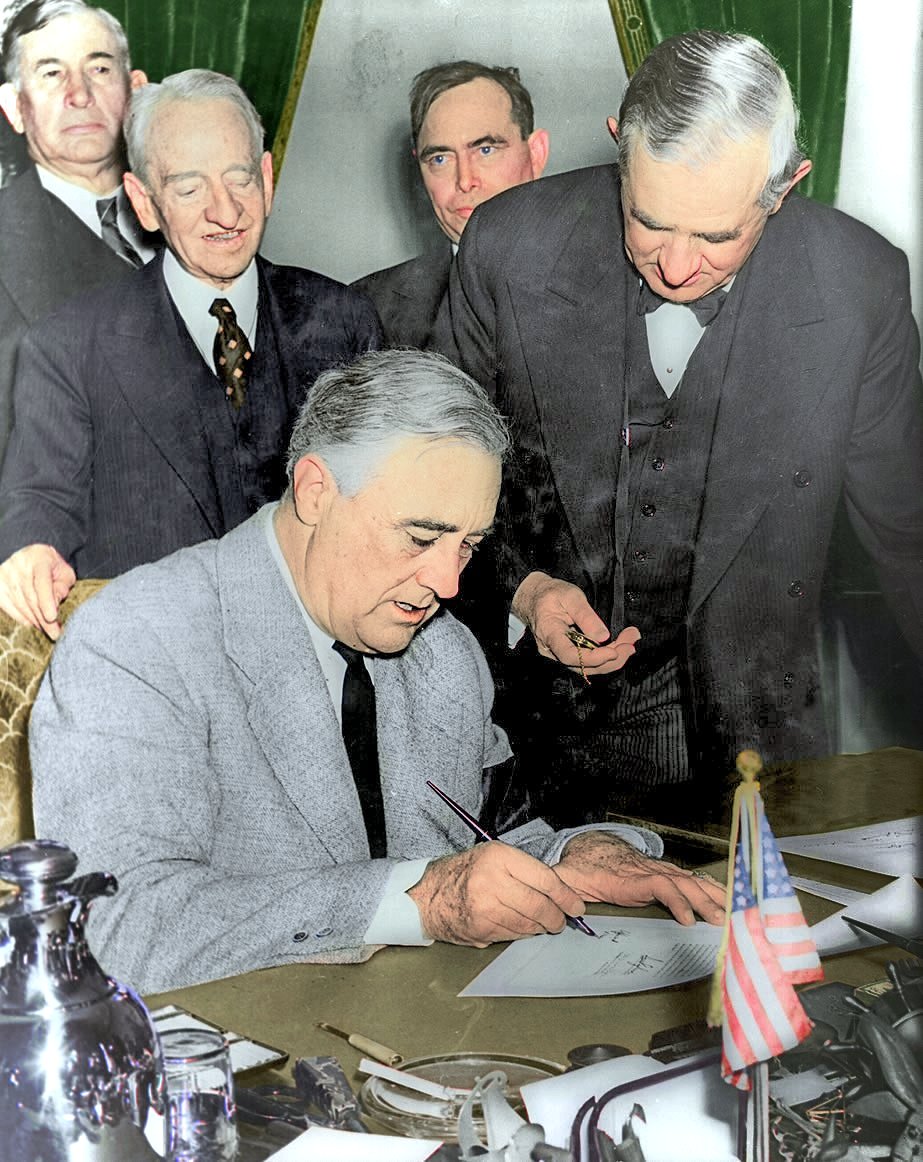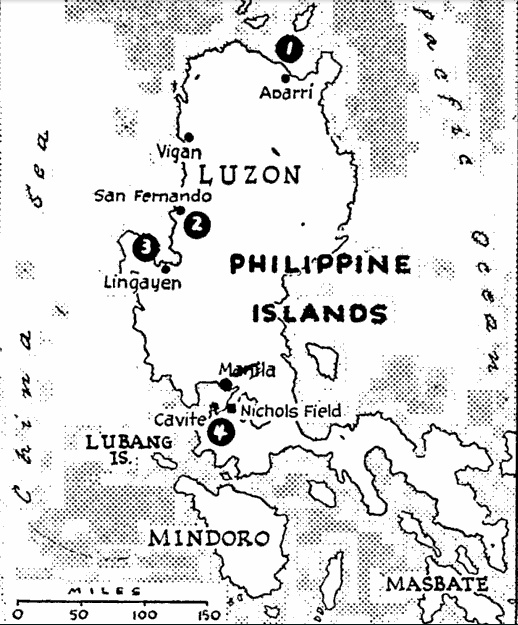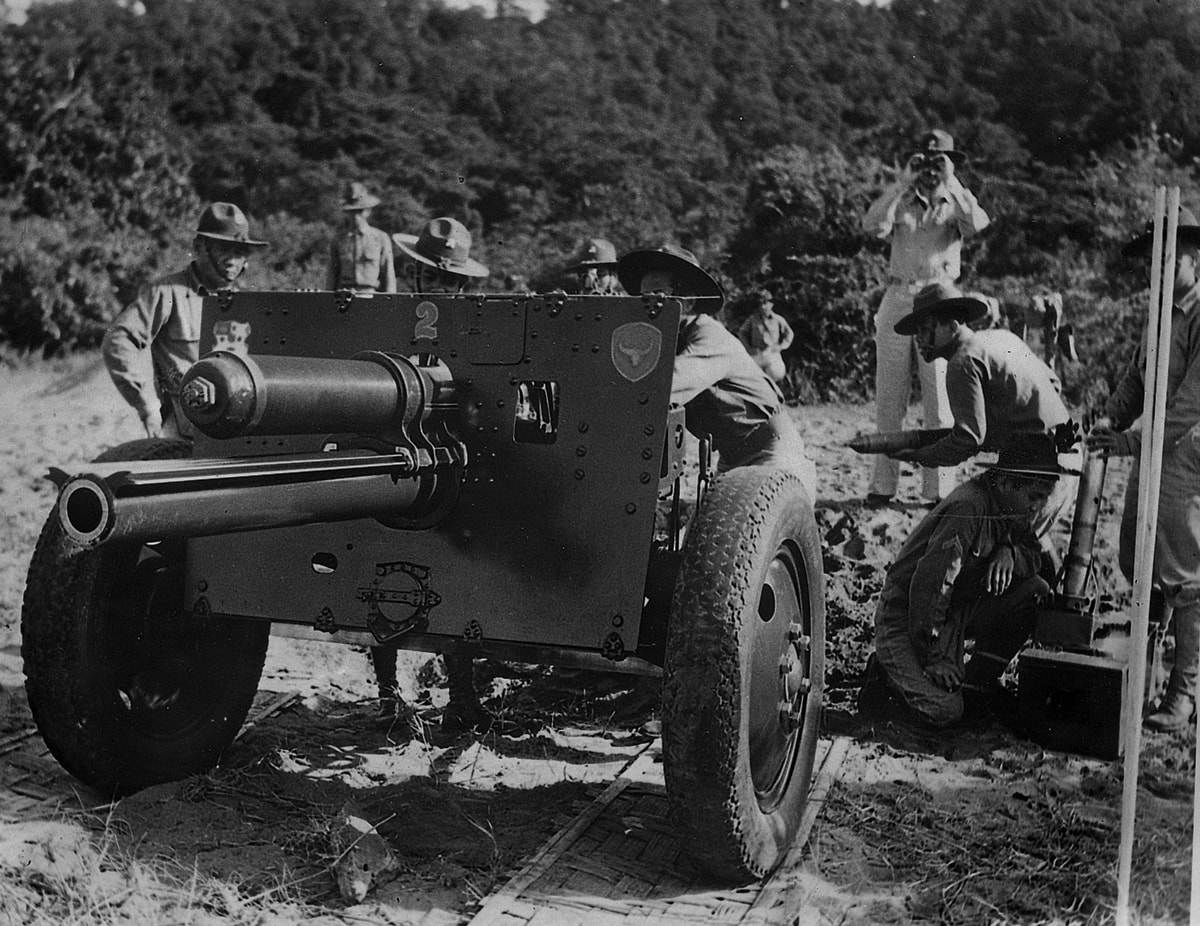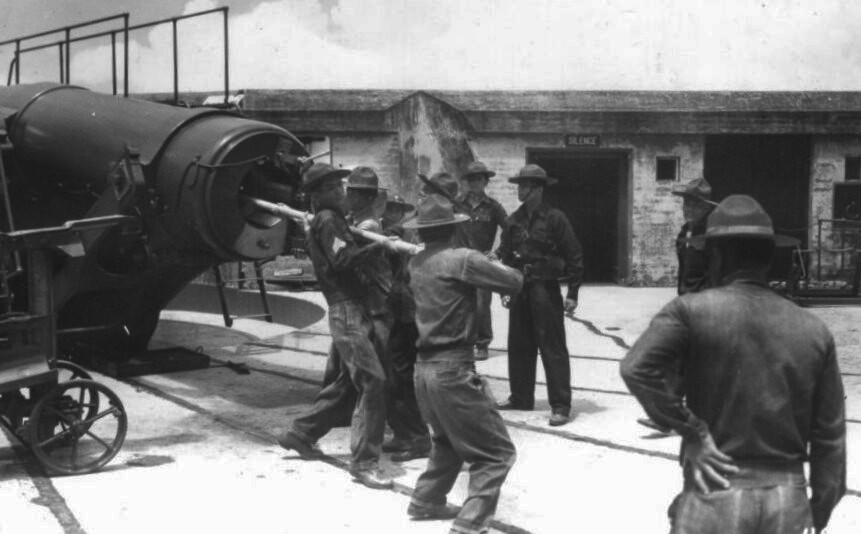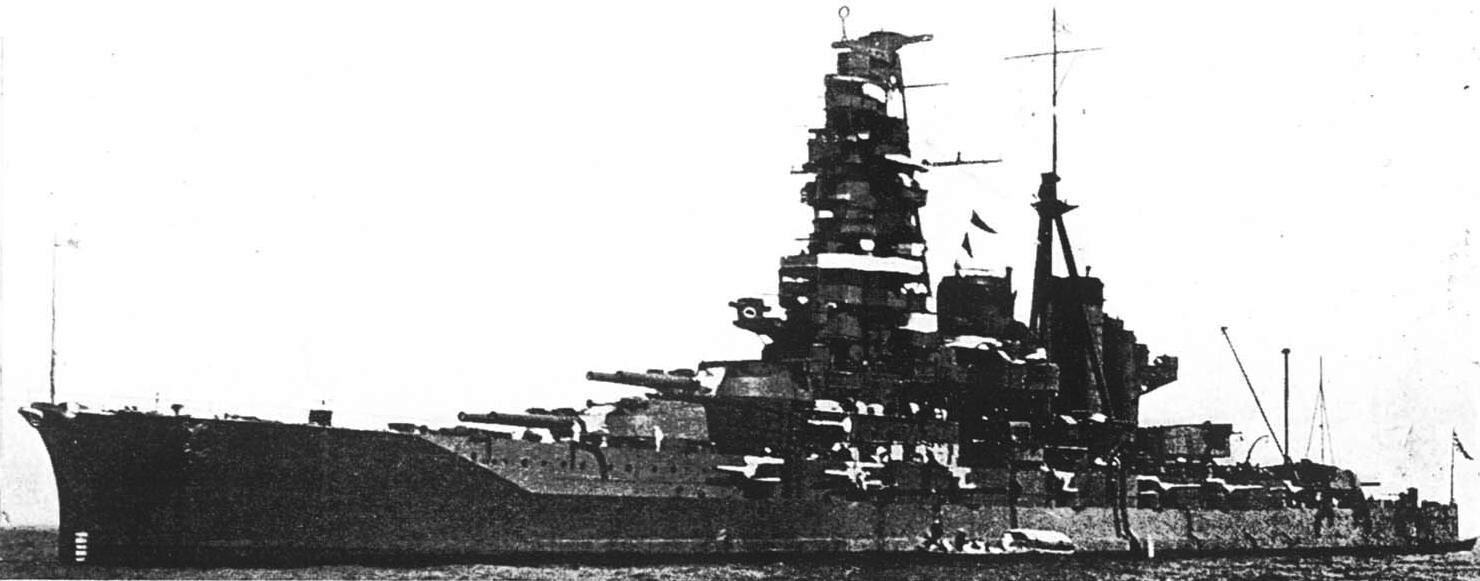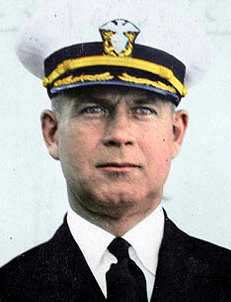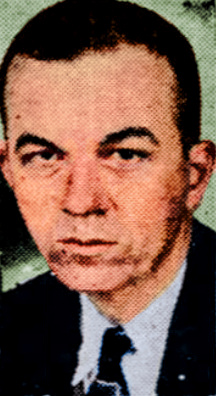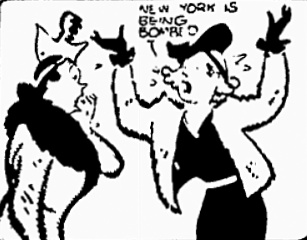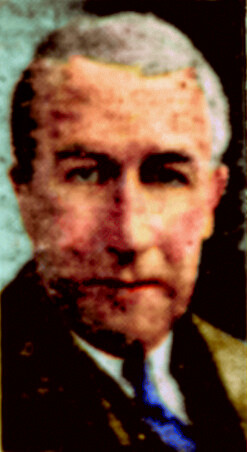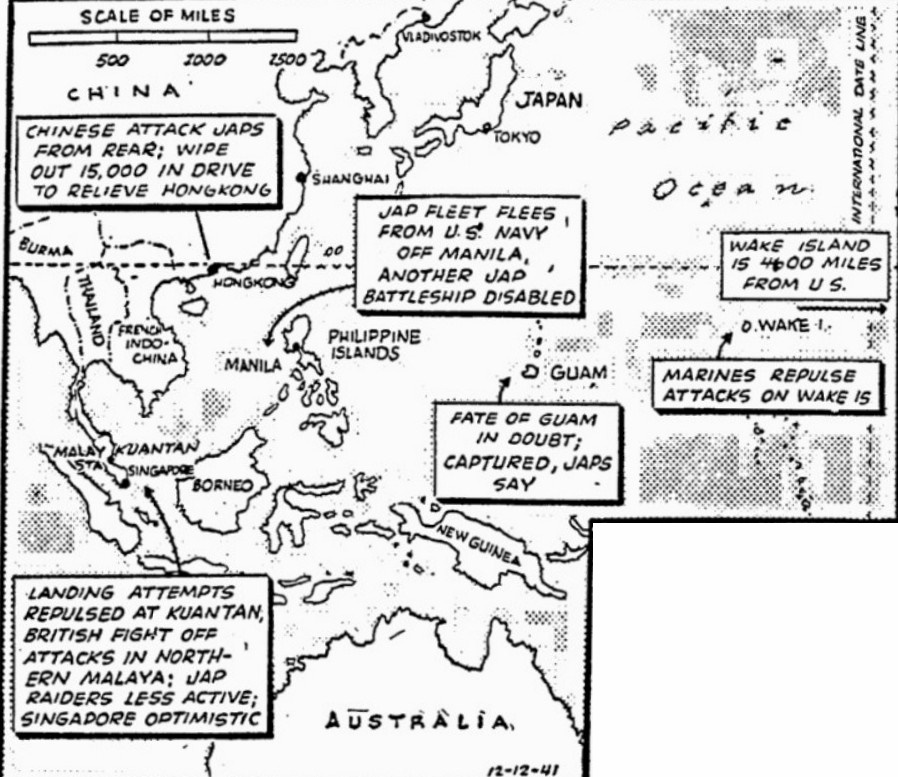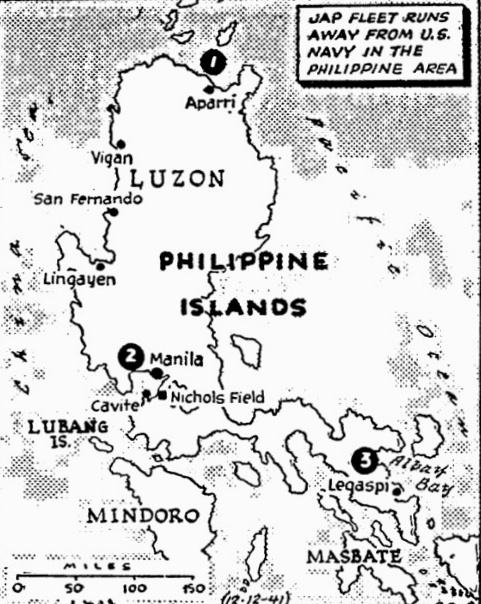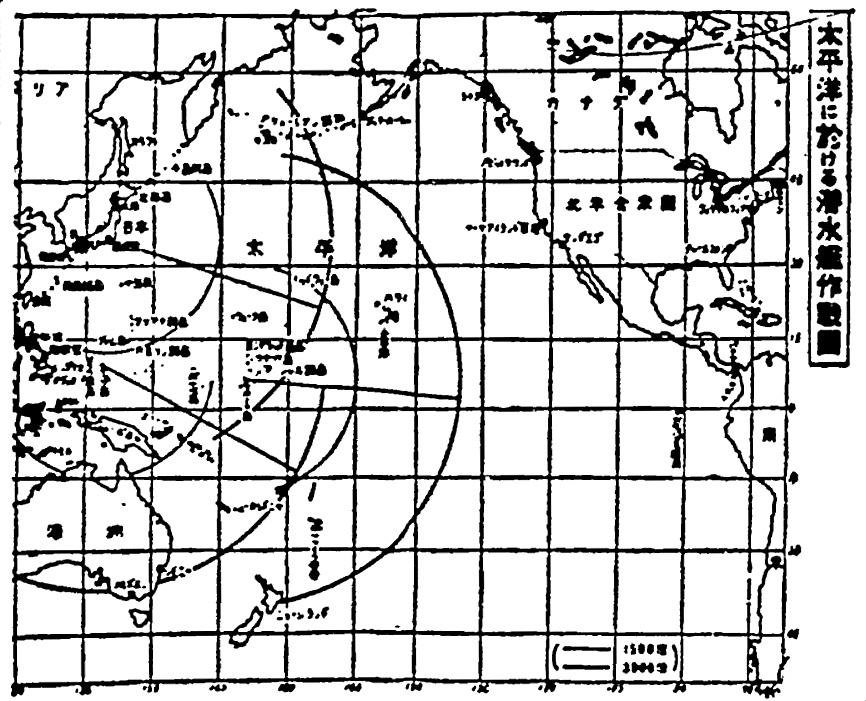Allein die wahre Gesinnung dieses Mannes enthüllt sich erst in einem Telegramm vom 15. Juni an den französischen Ministerpräsidenten Reynaud. Er teilt ihm mit, daß die amerikanische Regierung die Hilfeleistungen an Frankreich verdoppeln wird, vorausgesetzt, daß Frankreich den Krieg gegen Deutschland fortsetzt. Um diesem Wunsch nach Kriegsverlängerung noch besonders Nachdruck zu geben, gibt er die Erklärung ab, daß die amerikanische Regierung die Ergebnisse der Eroberung das heißt also die Rückgewinnung zum Beispiel der einst Deutschland geraubten Gebiete, nicht anerkennen werde. Ich brauche Ihnen nicht zu versichern, meine Herren Abgeordneten, daß es jeder deutschen Regierung gänzlich gleichgültig ist, ob der Präsident der Vereinigten Staaten eine Grenze in Europa anerkennt oder nicht, und auch in der Zukunft gleichgültig sein wird!
Ich führe den Fall nur zur Charakterisierung der planmäßigen Hetze dieses Mannes an, der von Frieden heuchelt und ewig nur zum Kriege hetzt. Denn nun Überfällt ihn die Angst, daß im Falle des Zustandekommens eines europäischen Friedens die Milliardenvergeudung seiner Aufrüstung in kurzer Zeit als glatter Betrug erkannt wird, da niemand Amerika dann angreift, wenn dieses nicht selbst den Angriff provoziert!
Am 17. Juni 1940 verfügt der Präsident der Vereinigen Staaten die Sperrung der französischen Guthaben. uni, wie er sich ausdrückt, sie dem deutschen Zugriff zu entziehen, in Wirklichkeit aber, um mit Hilfe eines amerikanischen Kreuzers das Gold von Casablanca nach Amerika abzuführen.
Vom Juli 1940 steigern sich die Maßnahmen Roosevelts immer mehr, um, sei es durch den Eintritt amerikanischer Staatsangehöriger in die britische Luftwaffe oder durch die Ausbildung von englischem Flugpersonal in den Vereinigten Staaten, den Weg zum Kriege selbst zu finden. Und schon im August 1940 erfolgt die gemeinsame Aufstellung eines militärischen Programms für die Vereinigten Staaten und Kanada. Um aber nun die Bildung eines amerikanisch-kanadischen Verteidigungskomitees wenigstens den größten Dummköpfen plausibel erscheinen zu lassen, erfindet er von Zeit zu Zeit Krisen, in denen er tut, als ob Amerika von einem Überfall bedroht sei, was er seinem – schon wirklich erbarmungswürdigen – Anhang dadurch einsuggeriert, daß er plötzlich Reisen abbricht, in höchster Eile nach Washington zurückfährt, um solcherart die Gefährlichkeit der Situation zu unterstreichen.
Im September 1940 nähert er sich dem Krieg noch mehr. Er tritt an die englische Flotte 50 Zerstörer der amerikanischen Flotte ab, wofür er allerdings militärische Stützpunkte in den britischen Besitzungen von Nord- und Mittelamerika übernimmt. Wie denn überhaupt eines erst die Nachwelt klären wird, nämlich inwieweit bei all diesem Haß gegen das soziale Deutschland auch noch die Absicht mitspielt, das britische Empire in der Stunde des Verfalls möglichst sicher und gefahrlos übernehmen zu können.
Nachdem nun England nicht mehr in der Lage ist, mit barem Gelde amerikanische Lieferungen bezahlen zu können, preßt er dem amerikanischen Volk das Pacht- und Leihgesetz auf. Als Präsident erhält er nun Vollmachten zur pacht- und leihweisen Unterstützung der Länder, deren Verteidigung ihm, Roosevelt, für Amerika als lebenswichtig erscheinen.
Allein im März 1941 geht dieser Mann, nachdem Deutschland unter keinen Umständen zu bewegen ist, auf seine fortgesetzten Anflegelungen zu reagieren, wieder einen Schritt weiter.
Schon am 19. Dezember 1939 haben amerikanische Kreuzer innerhalb der Sicherheitszone den Dampfer „Columbus“ britischen Kriegsschiffen in die Hände gespielt. Er mußte deshalb versenkt werden. Am selben Tage haben USA-Streitkräfte mitgewirkt bei dem Aufbringungsversuch des deutschen Dampfers „Arauca“. Am 27. Januar 1940 hat der USA-Kreuzer „Trenton“ wieder völkerrechtswidrig von Bewegungen der deutschen Handelsdampfer „Arauca“, „La Plata“ und „Wangoni“ die feindlichen Seestreitkräfte unterrichtet.
Am 27. Juni 1940 verfügte er vollständig völkerrechtswidrig eine Beschränkung der Freizügigkeit ausländischer Handelsschiffe in USA-Häfen.
Im November 1940 ließ er die deutschen Dampfer „Phrygia“, „Idarwald“ und „Rhein“ durch USA-Kriegsschiffe solange verfolgen, bis sich diese Dampfer selbst versenken mußten, um nicht dem Feind in die Hand zu fallen.
Am 13. April 1941 erfolgte die Freigabe des Verkehrs durch das Rote Meer für USA-Schiffe zur Versorgung der britischen Armeen im Nahen Osten.
Im Monat März war unterdes bereits die Beschlagnahme aller deutschen Schiffe durch die amerikanischen Behörden erfolgt. Deutsche Reichsangehörige wurden dabei in der entwürdigten Weise behandelt, ihnen gänzlich völkerrechtswidrig bestimmte Aufenthaltsorte angewiesen, Reisebeschränkungen auferlegt usw.
Zwei aus kanadischer Gefangenschaft entkommene deutsche Offiziere wurden ebenfalls entgegen allen völkerrechtlichen Bestimmungen gefesselt und wieder an die kanadischen Behörden ausgeliefert. Am 27. März begrüßt derselbe Präsident, der gegen jede Aggression ist, die durch eine Aggression in Belgrad nach dem Sturz der legalen Regierung ans Ruder gekommene Putschistenclique Simowitsch und Genossen.
Der Präsident Roosevelt schickte schon monatelang vorher den Oberst Donovan, ein vollständig minderwertiges Subjekt, in seinem Auftrag auf den Balkan, um dort zu versuchen, in Sofia und in Belgrad einen Aufstand gegen Deutschland und Italien herbeizuführen.
Er verspricht darauf im April Jugoslawien und Griechenland Hilfe auf Grund des Leih- und Pachtgesetzes. Noch Ende April erkennt dieser Mann die jugoslawischen und griechischen Emigranten wieder als Exilregierung an und sperrt im übrigen erneut völkerrechtswidrig die jugoslawischen und griechischen Guthaben. Von Mitte April ab erfolgt außerdem eine weitere Überwachung des Westatlantiks durch USA-Patrouillen und deren Meldungen an die Engländer.
Am 26. April liefert Roosevelt an England 20 Schnellboote und zugleich finden laufend Reparaturen britischer Kriegsschiffe in USA-Häfen statt. Am 12. Mai erfolgt die völkerrechtswidrige Bewaffnung und Reparatur norwegischer Dampfer, die für England fahren. Am 4. Juni treffen amerikanische Truppentransporte in Grönland zum Flugplatzbau ein, und am 9. Juni kommt die erste englische Meldung, daß auf Grund eines Befehls des Präsidenten Roosevelt ein USA-Kriegsschiff ein deutsches U-Boot bei Grönland mit Wasserbomben bekämpft habe.
Am 14. Juni erfolgt wieder völkerrechtswidrig die Sperrung der deutschen Guthaben in den Vereinigten Staaten. Am 17. Juni verlangt Präsident Roosevelt unter verlogenen Vorwänden die Zurückziehung der deutschen Konsuln und Schließung der deutschen Konsulate. Er verlangt weiter die Schließung der deutschen Presseagentur „Transocean“, der deutschen Informationsbibliothek und der deutschen Reichsbahnzentrale. Am 6. bis 7. Juli erfolgt die Besetzung des in der deutschen Kampfzone gelegenen Island auf den Befehl Roosevelts durch amerikanische Streitkräfte.
Er hofft dadurch nun bestimmt:
- Deutschland endlich zum Kriege zu zwingen,
- ansonsten den deutschen U-Bootkrieg genau so wertlos zu machen wie etwa im Jahre 1915-1916.
Zur gleichen Zeit schickt er ein amerikanisches Hilfsversprechen an die Sowjetunion ab. Am 10. Juli gibt plötzlich der Marineminister Knox bekannt, daß die USA einen Schießbefehl gegen die Achsenkriegsschiffe besitze. Am 4. September operiert der USA-Zerstörer „Greer“ entsprechend dem ihm gegebenen Befehl mit englischen Flugzeugen gegen deutsche U-Boote im Atlantik.
Fünf Tage später stellt ein deutsches U-Boot USA-Zerstörer als Geleitfahrzeuge im englischen Convoy fest. Am 11. September endlich hält Roosevelt jene Rede, in der er selbst den Befehl zum Schießen gegen alle Achsenschiffe bestätigt und neu erteilt. Am 29. September greifen USA-Bewacher ein deutsches U-Boot östlich Grönland mit Wasserbomben an. Am 17. Oktober bekämpft der USA-Zerstörer „Kearny“ im Geleitschutz für England fahrend, wieder ein deutsches U-Boot mit Wasserbomben, und am 6. November endlich kapern USA-Streitkräfte völkerrechtswidrig den deutschen Dampfer „Odenwald“, schleppen ihn in einen amerikanischen Hafen und setzen die Besatzung gefangen.
Die beleidigenden Angriffe und Anflegelungen dieses sogenannten Präsidenten gegen mich persönlich will ich dabei als belanglos übergehen. Daß er mich einen Gangster nennt, ist um so gleichgültiger, als dieser Begriff wohl mangels an derartige Subjekte nicht aus Europa, sondern aus den Amerika stammt.
Aber abgesehen davon kann ich von Herrn Roosevelt überhaupt nicht beleidigt werden, denn ich halte ihn so wie einst Woodrow Wilson ebenfalls für geisteskrank.
Daß dieser Mann mit seinem jüdischen Anhang seit Jahren mit den gleichen Mitteln gegen Japan kämpft, ist uns bekannt. Ich brauche sie hier nicht zur Sprache bringen. Auch hier sind dieselben Methoden zur Anwendung gekommen. Erst hetzt dieser Mann zum Krieg, dann fälscht er die Ursachen, stellt willkürliche Behauptungen auf, hüllt sich dann in widerwärtiger Weise ein in eine Wolke christlicher Heuchelei und führt so langsam, aber sicher die Menschheit dem Krieg entgegen, nicht ohne dann als alter Freimaurer dabei Gott zum Zeugen anzurufen für die Ehrbarkeit seines Handelns.
Ich glaube, Sie alle werden es als eine Erlösung empfunden haben, daß nunmehr endlich ein Staat als erster gegen diese in der Geschichte einmalige und unverschämte Mißhandlung der Wahrheit und des Rechtes zu jenem Protest schritt, den dieser Mann ja gewünscht hat und über den er sich daher jetzt nicht wundern darf.
Daß die japanische Regierung es nach jahrelangem Verhandeln mit diesem Fälscher endlich seit hatte, sich noch weiter in so unwürdiger Weise verhöhnen zu lassen, erfüllt uns alle, das deutsche Volk und, ich glaube, auch die übrigen anständigen Menschen auf der ganzen Welt, mit einer tiefen Genugtuung.
Wir wissen, welche Kraft hinter Roosevelt steht. Es ist jener ewige Jude, der seine Zeit als gekommen erachtet, um das auch an uns zu vollstrecken, was wir in Sowjetrußland alle schaudernd sehen und erleben mußten. Wir haben das jüdische Paradies auf Erden nunmehr kennengelernt. Millionen deutscher Soldaten haben den persönlichen Einblick gewinnen können in ein Land, in dem dieser internationale Jude Mensch und Gut zerstörte und vernichtete. Der Präsident der Vereinigten Staaten mag das vielleicht selbst nicht begreifen. Dann spricht dies nur für seine geistige Beschränktheit.
Wir aber wissen, daß dies das Ziel seines ganzen Kampfes ist: Auch wenn wir nicht im Bündnis mit Japan stünden, wären wir uns darüber im klaren, daß es die Absicht der Juden und ihres Franklin Roosevelt ist, einen Staat nach dem anderen allein zu vernichten. Das heutige Deutsche Reich hat aber nun nichts mehr gemein mit dem Deutschland von einst.
Wir werden daher auch von unserer Seite nun das tun, was dieser Provokateur seit Jahren zu erreichen versuchte. Nicht nur, weil wir Verbündete von Japan sind, sondern weil Deutschland und Italien in ihrer derzeitigen Führung genügend Einsicht und Stärke besitzen, um zu begreifen, daß in dieser historischen Zeit das Sein oder Nichtsein der Nationen bestimmt wird, vielleicht für immer.
Was diese andere Welt mit uns vorhat, ist uns klar. Sie haben das demokratische Deutschland von einst zum Verhungern gebracht sie würden das sozialistische von jetzt ausrotten. Wenn Herr Roosevelt oder Herr Churchill erklären, daß sie dann später eine neue soziale Ordnung aufbauen wollen, dann ist das ungefähr so, als wenn ein Friseur mit kahlem Kopf ein untrügliches Haarwuchsmittel empfiehlt.
Die Herren, die in den sozial rückständigsten Staaten leben, hätten, statt für Kriege zu hetzen, sich um ihre Erwerbslosen kümmern sollen. Sie haben in ihren Ländern Not und Elend genug, um sich dort im Sinne einer Verteilung von Lebensmitteln zu beschäftigen. Was das deutsche Volk betrifft, so braucht es weder von Herrn Churchill noch von einem Herrn Roosevelt oder gar von einem Mister Eden Almosen, sondern es will nur sein Recht.
Und dieses Recht zum Leben wird es sich sicherstellen, auch wenn tausend Churchills oder Roosevelts sich dagegen verschwören wollten. Dieses Volk hier hat nun eine fast zweitausendjährige Geschichte hinter sich. Es war in dieser langen Zeit noch nie so einig und geschlossen wie heute und wie es, dank der nationalsozialistischen Bewegung, für alle Zukunft nun sein wird. Es war aber auch vielleicht noch nie so hellsehend und selten so ehrbewußt.
Ich habe daher heute dem amerikanischen Geschäftsträger die Pässe zustellen und ihm folgendes eröffnen lassen:
Im Verfolg der immer weiteren Ausdehnung einer auf unbegrenzte Weltherrschaftsdiktatur gerichteten Politik des Präsidenten Roosevelt sind die Vereinigten Staaten von Amerika im Verein mit England vor keinem Mittel zurückgewichen, um dein deutschen, dem italienischen und auch dem japanischen Volke die Voraussetzungen ihrer natürlichen Lebenserhaltung zu bestreiten. Die Regierungen Englands und der Vereinigten Staaten von Amerika haben sich aus diesem Grunde nicht nur für die Gegenwart, sondern auch für alle Zukunft jeder berechtigten Revision zur Herbeiführung einer besseren Neuordnung der Welt entgegengesetzt.
Seit Kriegsbeginn hat sich der amerikanischen Präsident Roosevelt in steigendem Maße eine Reihe schwerster völkerrechtswidrige Verbrechen zuschulden kommen lassen. Gesetzlose Übergriffe auf Schiffe und sonstiges Eigentum deutscher und italienischer Staatsbürger verbanden sich mit der Bedrohung, ja der willkürlichen Beraubung der persönlichen Freiheit der Betroffenen durch Internierungen usw. Die sich auch sonst weiter verschärfenden Angriffe des Präsidenten der Vereinigten Staaten Roosevelt führte am Ende soweit, daß er der amerikanischen Marine den Befehl erteilte, entgegen allen Völkerrechtsbestrebungen, Schiffe deutscher und italienischer Nationalität überall sofort anzugreifen, zu beschießen und sie zu versenken.
Amerikanische Minister rühmten sich auch, auf diese verbrecherische Weise deutsche U-Boote veinirhtet zu haben. Deutsche und italienische Handelsschiffe wurden von amerikanischen Kreuzern überfallen. gekapert und ihre friedliche Besatzung in Gefängnisse abgeführt. Ohne jeden Versuch einer amtlichen Widerlegung von seiten der amerikanischen Regierung wurde aber darüber hinaus nunmehr in Amerika der Plan des Präsidenten Roosevelt veröffentlicht, spätestens im Jahre 1943 Deutschland und Italien mit militärischen Machtmitteln in Europa selbst angreifen zu wollen.
Dadurch ist das aufrichtige und von beispielloser Langmut zeugende Bestreben Deutschlands und Italiens, trotz der seit Jahren erfolgten unerträglichen Provokationen durch den Präsidenten Roosevelt eine Erweiterung des Krieges zu verhüten und die Beziehungen zu den Vereinigten Staaten aufrechtzuerhalten, zum Scheitern gebracht worden.
Deutschland und Italien haben demgegenüber sich nunmehr endlich gezwungen gesehen, getreu den Bestimmungen des Dreimächtepaktes vom 27. September 1940 Seite an Seite mit Japan den Kampf zur Verteidigung und damit Erhaltung der Freiheit und Unabhängigkeit ihrer Völker und Reiche gegen die Vereinigten Staaten von Amerika und England gemeinsam zu führen.
Die drei Mächte haben deshalb das folgende Abkommen abgeschlossen und am heutigen Tage in Berlin unterzeichnet:
In dem unerschütterlichen Entschluß, die Waffen nicht niederzulegen, bis der gemeinsame Krieg gegen die Vereinigten Staaten von Amerika und England zum erfolgreichen Ende geführt worden ist, haben sich die deutsche Regierung, die italienische Regierung und die japanische Regierung über folgende Bestimmungen geeinigt:
ARTIKEL 1
Deutschland, Italien und Japan werden den ihnen von den Vereinigten Staaten von Amerika und England aufgezwungenen Krieg mit allen ihnen zu Gebote stehenden Machtmitteln gemeinsam bis zum siegreichen Ende führen.ARTIKEL 2
Deutschland, Italien und Japan verpflichten sich, ohne volles gegenseitiges Einverständnis weder mit den Vereinigten Staaten von Amerika noch mit England Waffenstillstand oder Frieden zu schließen.ARTIKEL 3
Deutschland, Italien und Japan werden auch nach siegreicher Beendigung des Krieges zum Zwecke der Herbeiführung einer gerechten Neuordnung im Sinne des von ihnen am 27. September 1940 abgeschlossenen Dreimächtepaktes auf das engste zusammenarbeiten.ARTIKEL 4
Dieses Abkommen tritt sofort mit seiner Unterzeichnung in Kraft und bleibt ebenso lange wie der Dreimächtepakt vom 27. September 1940 in Geltung. Die hohen vertragschließenden Teile werden sich rechtzeitig vor Ablauf dieser Geltungsdauer über die weitere Gestaltung ihrer im Artikel 3 dieses Abkommens vorgesehenen Zusammenarbeit verständigen.Abgeordnete! Männer des Deutschen Reichstags!
Wir sind uns schon seit der Ablehnung meines letzten Friedensvorschlages vom Juli 1940 im klaren, daß dieser Kampf bis zur letzten Konsequenz durchgekämpft werden muß. Daß sich die angelsächsisch-jüdisch-kapitalistische Welt mit dem Bolschewismus dabei in einer Front befindet, ist für uns Nationalsozialisten keine Überraschung. Wir haben sie im Innern stets in der gleichen Gemeinschaft gefunden, allein wir haben diesen Kampf im Innern erfolgreich bestanden und unsere Gegner endlich nach sechzehnjährigem Ringen um die Macht vernichtet.
Als ich mich vor 23 Jahren entschloß, in das politische Leben einzutreten, um die Nation aus ihrem Verfall wieder emporzuführen, war ich ein namenloser unbekannter Soldat. Viele unter Ihnen wissen, wie schwer die ersten Jahre dieses Kampfes gewesen sind. Der Weg der kleinen Bewegung von sieben Mann bis zur Übernahme der verantwortlichen Regierung am 30. Januar 1933 war ein so wundersamer, daß nur die Vorsehung selbst durch ihren Segen dies ermöglicht haben kann.
Heute stehe ich an der Spitze des stärksten Heeres der Welt, der gewaltigsten Luftwaffe und einer stolzen Marine. Hinter mir und um mich als eine verschworene Gemeinschaft weiß ich die Partei, mit der ich groß geworden bin und die durch mich groß geworden ist.
Die Gegner, die ich vor mir sehe, sind die bekannten Feinde seit über 20 Jahren. Allein der Weg, der vor mir liegt, ist nicht zu vergleichen mit dem Weg, auf den ich zurückblicken kann. Das deutsche Volk steht in der Erkenntnis der entscheidenden Stunde seines Daseins. Millionen von Soldaten erfüllen unter den schwersten Bedingungen gehorsam und treu ihre Pflicht.
Millionen deutscher Bauern und Arbeiter, deutscher Frauen und Mädchen stehen in den Fabriken und Kontoren, auf den Feldern und Äckern und schaffen im Schweiße ihres Angesichts der Heimat das Brot und der Front die Waffen. Mit uns im Bunde sind starke Völker, die von der gleichen Not gequält, die gleichen Feinde vor sich finden.
Der amerikanische Präsident und seine plutokratische Clique haben uns als die Völker der Habenichtse getauft. Das ist richtig!
Die Habenichtse aber wollen leben, und sie werden auf alle Fälle erreichen, daß das Wenige, das sie zum Leben haben, ihnen nicht auch noch von den Besitzenden geraubt wird. Sie kennen, meine Parteigenossen, meine unerbittliche Entschlossenheit, einen einmal begonnenen Kampf bis zum erfolgreichen Ende zu führen. Sie kennen meinen Willen, in so einem Kampf vor nichts zurückzuscheuen, alle Widerstände zu brechen, die gebrochen werden müssen.
Ich habe Ihnen in meiner ersten Rede am 1. September 1939 versichert, daß in diesem Krieg weder Waffengewalt noch Zeit Deutschland niederzwingen werden. Ich will meinen Gegnern auch versichern, daß uns nicht nur die Waffengewalt oder die Zeit nicht bezwingen werden, sondern daß uns auch kein innerer Zweifel wankend machen kann in der Erfüllung unserer Pflicht.
Wenn wir an die Opfer unserer Soldaten denken, an ihren Einsatz, dann ist jedes Opfer der Heimat gänzlich belanglos und unbedeutend. Wenn wir aber die Zahl all jener uns überlegen, die in den Generationen schon vor uns für des deutschen Volkes Bestehen und Größe gefallen sind, dann wird uns erst recht die Größe der Pflicht bewußt, die auf uns selbst lastet.
Wer aber dieser Pflicht sich zu entziehen beabsichtigt, der hat keinen Anspruch darauf, in unserer Mitte als Volksgenosse bewertet zu werden.
So wie wir mitleidlos hart gewesen sind im Kampf um die Macht, werden wir genau so mitleidlos und hart sein im Kampf um die Erhaltung unseres Volkes, in einer Zeit in der tausende unserer besten Männer, Väter und Söhne unseres Volkes fallen, soll keiner mit dem Leben rechnen, der in der Heimat die Opfer der Front entwerten will.
Ganz gleich, unter welchen Tarnungen jemals der Versuch gemacht werden würde, diese deutsche Front zu stören, den Widerstandswillen unseres Volkes zu untergraben, die Autorität des Regimes zu schwächen, die Leistungen der Heimat zu sabotieren: Der Schuldige wird fallen! Nur mit einem Unterschied, daß der Soldat an der Front dieses Opfer in höchster Ehre bringt, während der andere, der dieses Ehrenopfer entwertet, in Schande stirbt.
Unsere Gegner sollen sich nicht täuschen. In den 2000 Jahren der uns bekannten deutschen Geschichte ist unser Volk niemals geschlossener und einiger gewesen als heute. Der Herr der Welten hat so Großes in den letzten Jahren an uns getan, daß wir in Dankbarkeit uns vor einer Vorsehung verneigen, die uns gestattet hat, Angehörige eines so großen Volkes sein zu dürfen. Wir danken ihm, daß wir angesichts der früheren und kommenden Generationen des deutschen Volkes auch uns in Ehre eintragen können in das unvergängliche Buch der deutschen Geschichte!
Hitler Telegrams
December 11, 1941
To King Victor Emmanuel of Italy:
Aus Anlaß der Unterzeichnung des Vertrages, durch den die Achsenmächte sich mit dem Kaiserreich Japan zu gemeinsamer Kriegführung und Zusammenarbeit zur Sicherstellung einer gerechten Neuordnung verbunden haben, sende ich Euerer Majestät zugleich mir meinen aufrichtigsten Grüßen die herzlichsten Wünsche für den weiteren Kampf der nunmehr eng verbundenen Waffen der drei Mächte.
To Italian Premier Mussolini:
Am heutigen Tage des Abschlusses des Abkommens, durch das die Achsenmächte und Japan sich zu gemeinsamer Waffenbrüderschaft entschließen, sende ich Ihnen, Duce, meine herzlichsten Grüße. Ich weiß mich mit Ihnen einig in der Gewißheit, daß dieser Akt sich als sichere Bürgschaft des gemeinsamen Siegers der drei Mächte erweisen wird.
To Emperor Hirohito of Japan:
An dem heutigen bedeutsamen Tage, an dem sich die Achsenmächte mit dem Kaiserreich Japan zu gemeinsamer Kriegführung bis zum gemeinsamen Siege verbunden haben, sende ich Euerer Majestät mit den aufrichtigsten Grüßen meine Glückwünsche zu den bisherigen großen Erfolgen der japanischen Wehrmacht sowie meine und des deutschen Volkes wärmste Wünsche für den Sieg der japanischen Waffen.
To Japanese Prime Minister Tojo:
Aus Anlaß des heutigen Abschlusses des Abkommens zwischen den Achsenmächten und dem Kaiserreich Japan, durch das sich die drei Mächte zum gemeinsamen Kampfe, gemeinsamen Siege und gemeinsamen Aufbau in der Zukunft verbunden haben, sende ich Euerer Exzellenz meine herzlichsten Glückwünsche zu dem schon erzielten, so bedeutsamen Erfolge der japanischen Waffen und verbinde damit die wärmsten Wünsche für den weiteren Fortgang des nunmehr gemeinsam geführten Kampfes.





